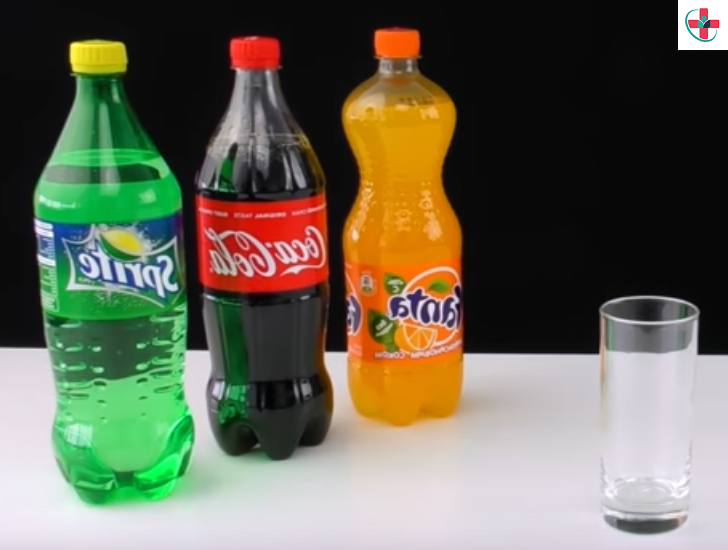Before you pop the top on another can of your favorite soft drink, you might want to stop and think about the harm you’re doing to your teeth.
The sugars in soft drinks interact with bacteria in your mouth to form acid. This acid attacks your teeth. Add that to the acids normally contained in both regular and sugar-free sodas and you’re starting a damaging reaction that lasts for about 20 minutes. If you sip all day, your teeth are under constant attack.
To give you an idea of how much acid and sugar are in some of your favorite drinks might be, consider the following numbers:
- Battery Acid: acidity of 6; 0 tsp. sugar
- Pepsi: acidity of 4.5; 9.8 tsp. sugar
- Dr. Pepper: acidity of 4; 9.5 tsp. sugar
- Mountain Dew: acidity of 3.7; 11 tsp. sugar
- Diet Coke: acidity of 3.6; 0 tsp. sugar
- Gatorade: acidity of 4; 3.3 tsp. sugar
- Sprite: acidity of 3.6; 9.0 tsp. sugar
- Barq’s: acidity of 2.4; 10.7 tsp. sugar
Effects of soft drinks on your teeth
Soft drink consumption leads to two major dental health issues: erosion and cavities.
- Erosion: The acids that result from drinking soda weaken tooth enamel. This thin, outermost layer of your teeth protects them from daily use such as chewing, biting and grinding. When enamel erodes, the sensitive dentine layer underneath is exposed, making the tooth more susceptible to damage, including decay. It can also lead to tooth pain and sensitivity. Erosion is a serious dental issue because tooth enamel does not regenerate.
- Cavities: Soft drink consumption is one of several leading causes of tooth decay. Soda is a triple threat to your teeth. Besides weakening tooth enamel, the carbonation, sugar and acids encourage the growth of bacteria in your mouth and on your teeth that contribute to cavities.
Reduce damage to your teeth from soft drinks
Unless you have superhuman willpower, giving up soft drinks forever isn’t a workable solution. However, there are measures you can take to reduce the risk of damage to your teeth.
- Don’t sip all day: Constant exposure to the sugars and acids in soft drinks means your mouth can’t restore its natural pH balance.
- Lessen direct exposure to soda: The faster you drink, the less time the sugars and acids have to damage your teeth. You can also drink using a straw, which delivers the soda to the back of your mouth.
- Rinse your mouth with water: Flushing your mouth with some water after drinking soda will help wash away any remaining sugars and acids, stopping them from attacking your teeth.
- Wait before you brush: Despite what you may think, brushing your teeth immediately after you have a soda isn’t a good idea. That’s because the friction against the vulnerable and recently acid-attacked teeth can do more harm than good. Wait about an hour before brushing.
- Avoid soft drinks before bedtime: Not only will the sugar likely keep you up, but the sugar and acid will have all night to attack your teeth.
- Drink soda with food: Drink a soft drink with a meal, when there’s a lot of saliva present to break down the acid.
- Get regular dental checkups and cleanings: Your dentist can spot any problems before they worsen. Professional teeth cleaning will remove the buildup of plaque and bacteria that promote decay.
